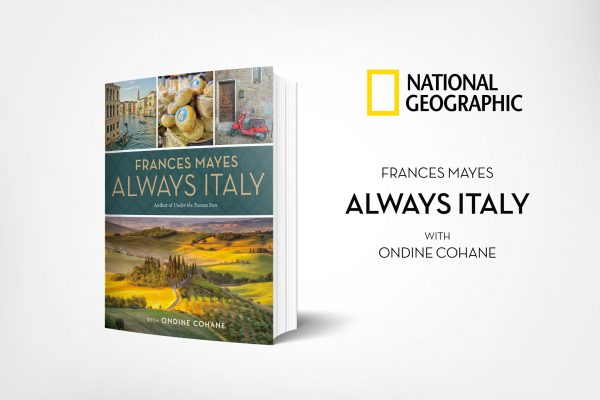When Ondine Cohane and her husband opened a hotel in the Tuscan countryside,
everyone said they were living the dream—only it wasn’t really hers
My husband and I are dressed for a photo shoot: he in a crisp linen shirt and jacket, me in a pink Michael Kors shift. His face is tanned from summer weddings, my makeup professionally done. He pours me an Aperol spritz while the photo crew
congregates by the fire pit in front of us, Tuscany’s rolling hills in shades of gold and brown falling away below. A writer interviews
us about living our Italian dream, the New York couple who uprooted their lives and left their jobs to open one, and then two, hotels. As we take turns sharing our story, my hands tremble slightly. And we can’t quite hold each other’s gaze.
Fifteen years earlier, we had spent a few weeks in Italy searching for a wedding venue. We saw lots of villas and resorts, but none quite captured the formula we wanted: a specific mix of luxury and informality (in-room bathtubs, for instance); excellent service with the ease of being at home; great design that celebrates local materials. One night, my soon-to-be husband suggested, over a bottle of Brunello, that we should open the kind of hotel we loved.
When we first saw the crumbling stone farmhouse that we hoped to transform into a boutique hotel, there were three cows hanging out in what would one day become an open-plan living room with yellow Venetian plaster walls. A herd of sheep bleated plaintively from the duo of ground-floor bedrooms, and in one future suite, a family of pigs snorted at us as we discussed how a kitchen, private pergola, and garden
would make it the property’s best rather than a pissoir for farm animals. I wavered between believing in our dream and being completely terrified by what we were undertaking as two people with successful careers in media who had no clue about opening a hotel—apart from what we liked in those we had visited ourselves, mostly on corporate expense accounts.
We were lucky. Somehow we found a knowledgeable team— including an incredibly generous investor, an inspired architect couple, and loyal builders—who helped us translate ideas from a bulging file of magazine clippings into a real renovation plan. There were setbacks, including the discovery that the property wasn’t technically available to buy for a few more years, necessitating a million-dollar insurance policy to prevent either party from opting out. But I think we did better in crisis than even we expected
I FANTASIZED THAT I WAS A DIFFERENT KIND OF INNKEEPER’S WIFE . . . WHO DARED TO SAY THE THINGS I COULDN’T
We opened in June 2007, hosting a yoga retreat from my favorite New York studio. We were still cleaning bedrooms an hour before the group’s arrival, since the property had been deluged with mud from the constant spring rain, but we managed to smooth over these setbacks with a few discounts and free wine. The day after the group left, the sun came out. I jumped into our infinity pool and, with my hair still wet, laid down in the wheat field by the hotel. With the rays on my face, I felt that nothing could go truly wrong in this place, and I imagined that decades from now we would be the happy old couple having an aperitivo every evening in the perfect
Renaissance town that was now our home.
My husband and I were in agreement from the start that he would manage the day-to-day (I still had my writing career), so I became a voyeur of sorts. It was like The Grand Budapest Hotel, only set in Italy and full of Latin passion. The events seemed staged for cinematic effect: the divorced ladies who in the course of a day got wasted, left their car stuck in a field, and slept with police officers from a local town—one of them to be discovered half-dressed on the sofa by the cleaning lady the next morning (oh, what she has seen!); the second wife
whose husband’s first family banned her from staying in the hotel, and who passed out on the marble living room floor before the aperitivo was even served at her stepdaughter’s wedding; the couple who said they knew how to drive stick shift but managed to let their car reverse into the neighboring sheep pond while they were taking a photo of the flock; the intense chemistry that seemed to spring up every season
between members of the staff, a telenovela-worthy stable of affairs so profound that sleep was lost, love made (sometimes in laundry rooms or steam rooms), and hearts broken . . . much like the arc of the season itself. Couples married, children were conceived, close friendships were forged, and lives fell apart.
Our social media presence offered a constant stream of our blond son loose in the Tuscan hills and long boozy lunches with new friends in picturesque piazzas, alternating with threemonth holidays during the winter off-season in Southeast Asia and Mexico, vistas idyllically at odds with the schlep on the subway and Times Square offices we had left behind.
That is what we heard the most: “You are living the dream.”
But cracks had started to form. I’d gotten pregnant immediately after we opened the first hotel, only to miscarry 20 weeks later following an amniocentesis; that loss and then continuing to try for a baby for a year and a half left me vulnerable.
When our first child turned three and I wanted a second baby, I thought my husband seemed more eager to open a second hotel. Then 2008 happened, and we didn’t get the loan we were hoping for. I blamed my husband for the financial insecurity around us, and for the growing feeling that I was no longer the priority in his life. I feared that he saw me as just one more person in a long line of people asking for
things all day.
With the second hotel, we accrued a larger staff and lots of new guests, and as more people became part of our lives, I felt strangely
lonely. Being innkeepers meant sharing our lives for the most part with people we encountered only for a weekend, while integrating into a close-knit community of Italians who had pretty much known one another since birth. We were transients and residents, strangers yet friends with everyone.
When my husband and I were close none of that mattered, but now that we were drifting apart, I struggled with both isolation and lack of privacy.
At times, I fantasized that I was a different kind of innkeeper’s wife, a glamorous and unflappable hotel owner based on one I actually had met when we were moving to Italy—a gorgeous former actress who changed outfits three times a day, fenced and practiced yoga, and seemed not to care at all what guests thought as long as she was happy.
My innkeeper’s wife alter ego dressed in Wellingtons and flimsy cover-ups more appropriate for Sophia Loren in a blurry seduction scene. She would loiter about with a lit cigarette in one hand and a glass of pinot grigio in the other. Her makeup was a bit smudged; she exchanged smoldering gazes with sexy men around town. And she never questioned whether she belonged.
Aside from projecting louche glamour, one excellent quality of my alter ego was that she always dared to say the things I couldn’t: “Darling, if you tell me one more detail about your rental car, or lost bags, or delayed flight, I will quite simply die of boredom.” Or, “Chianciano Terme for a day-trip—really?
What a shithole.” Or, “You are honestly asking if this is a profitable business? Want to show me your tax return?” Over the
last 18 months, she might have said, “Yes, I am living the dream, but are you ready to hear about my nightmare?”
I wonder how my alter ego would have reacted when the telenovela’s plot became about my husband and a local woman. I think she might have thrown everything into a Fiat 500 convertible and floored it out of town, with just the strong scent of her perfume left behind and Beyoncé’s Sorry blaring as the stunned townspeople looked on.
Instead, I stayed. I cried, raged, sat stone-faced, gave him a black eye; fell into despair and denial alternating with a strange kind of mania; found solace in cigarettes, vermentino, long-distance runs, confessions to close friends (and perhaps not always the right guest or local). I also experienced profound moments of freedom and happiness at the thought of what could come next. During much of the breakup, I held out hope that we could resuscitate our marriage because of our son and the stability I had found in our 20-year relationship.
After a time, though, it became obvious that our love story with our hotels, with each other, and even with our neighbors had fundamentally changed. I know the town’s roughly 2,000 residents by face if not by name. We talk about soccer, death, and the weather; I hear all kinds of stories about other people. Part of the greatest humiliation for me was when my husband and I became just another story, one which I didn’t have the nerve to mention to the magazine writer who interviewed us that day last fall.
Over these last few months, though, while reckoning with was projection and what was real, I have rediscovered this place that we fell in love with a decade earlier. I am trying to find new routines: I run in olive groves and eat homemade pici with locals. I’m writing more. My son is the constant, the link between what was and what will be. I remain proud of what my husband and I built, so I still drop by the hotels every day to visit with a few returning guests whom I feel I actually know, and love, in their complexities. My alter ego, meanwhile, has given me license to speak my mind, flirt a little, and care a bit less about making people happy.
In the summer, families congregate—children, teenagers, parents, grandparents—in the central square. Kids whirl around and around the piazza; bedtimes and next-day responsibilities are forgotten. We chat and drink wine under the stars, and sometimes they tell me how hard it is for their businesses to make ends meet, or how sick they are of their spouse. Most of the time, though, we just enjoy the beauty of the square bathed in moonlight, our kids free to explore. And for now, that’s enough.




